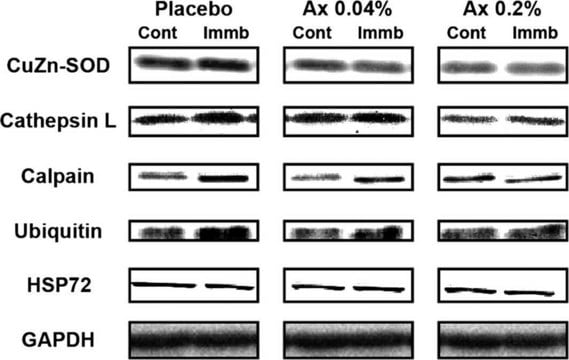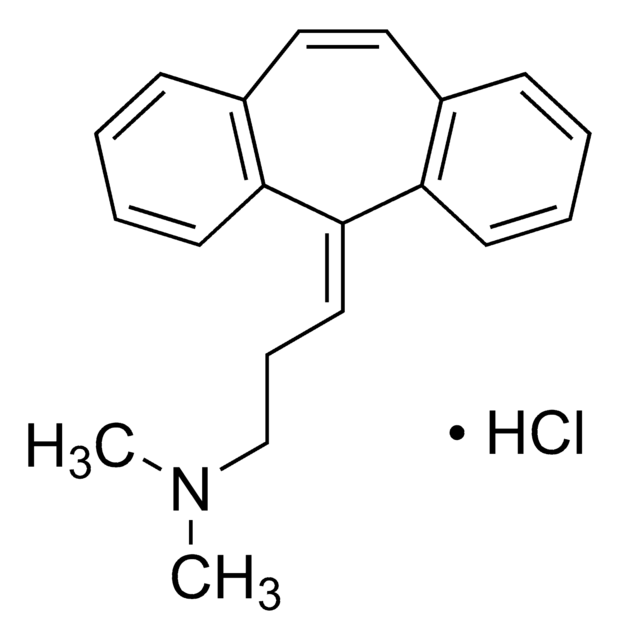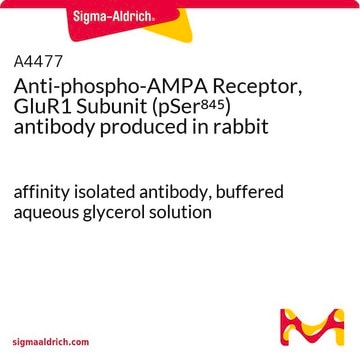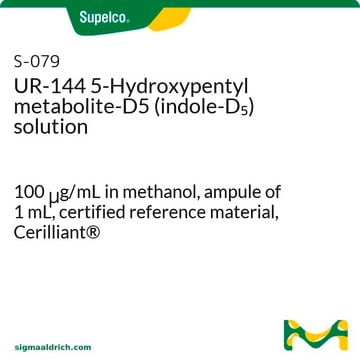C4618
Monoclonal Anti-Cathepsin L antibody produced in mouse
clone CPL33/1, purified from hybridoma cell culture
Sinónimos:
Anti-CATL, Anti-CTSL, Anti-MEP
About This Item
Productos recomendados
biological source
mouse
Quality Level
conjugate
unconjugated
antibody form
purified immunoglobulin
antibody product type
primary antibodies
clone
CPL33/1, monoclonal
form
buffered aqueous solution
mol wt
antigen ~25 kDa (human cathepsin L)
antigen ~42 kDa (human pro cathepsin L)
species reactivity
human
concentration
~2 mg/mL
technique(s)
immunohistochemistry: suitable
indirect ELISA: suitable
western blot: 0.1-0.2 μg/mL using total cell extracts of A549 cells
isotype
IgG1
shipped in
dry ice
storage temp.
−20°C
target post-translational modification
unmodified
Gene Information
human ... CTSL1(1514)
¿Está buscando productos similares? Visita Guía de comparación de productos
Categorías relacionadas
General description
Specificity
Immunogen
Application
- immunohistochemistry
- indirect ELISA
- western blot : 0.1-0.2 μg/mL using total cell extracts of A549 cells
Biochem/physiol Actions
Physical form
Disclaimer
¿No encuentra el producto adecuado?
Pruebe nuestro Herramienta de selección de productos.
Optional
related product
Storage Class
10 - Combustible liquids
wgk_germany
nwg
flash_point_f
Not applicable
flash_point_c
Not applicable
ppe
Eyeshields, Faceshields, Gloves, type ABEK (EN14387) respirator filter
Certificados de análisis (COA)
Busque Certificados de análisis (COA) introduciendo el número de lote del producto. Los números de lote se encuentran en la etiqueta del producto después de las palabras «Lot» o «Batch»
¿Ya tiene este producto?
Encuentre la documentación para los productos que ha comprado recientemente en la Biblioteca de documentos.
Nuestro equipo de científicos tiene experiencia en todas las áreas de investigación: Ciencias de la vida, Ciencia de los materiales, Síntesis química, Cromatografía, Analítica y muchas otras.
Póngase en contacto con el Servicio técnico








